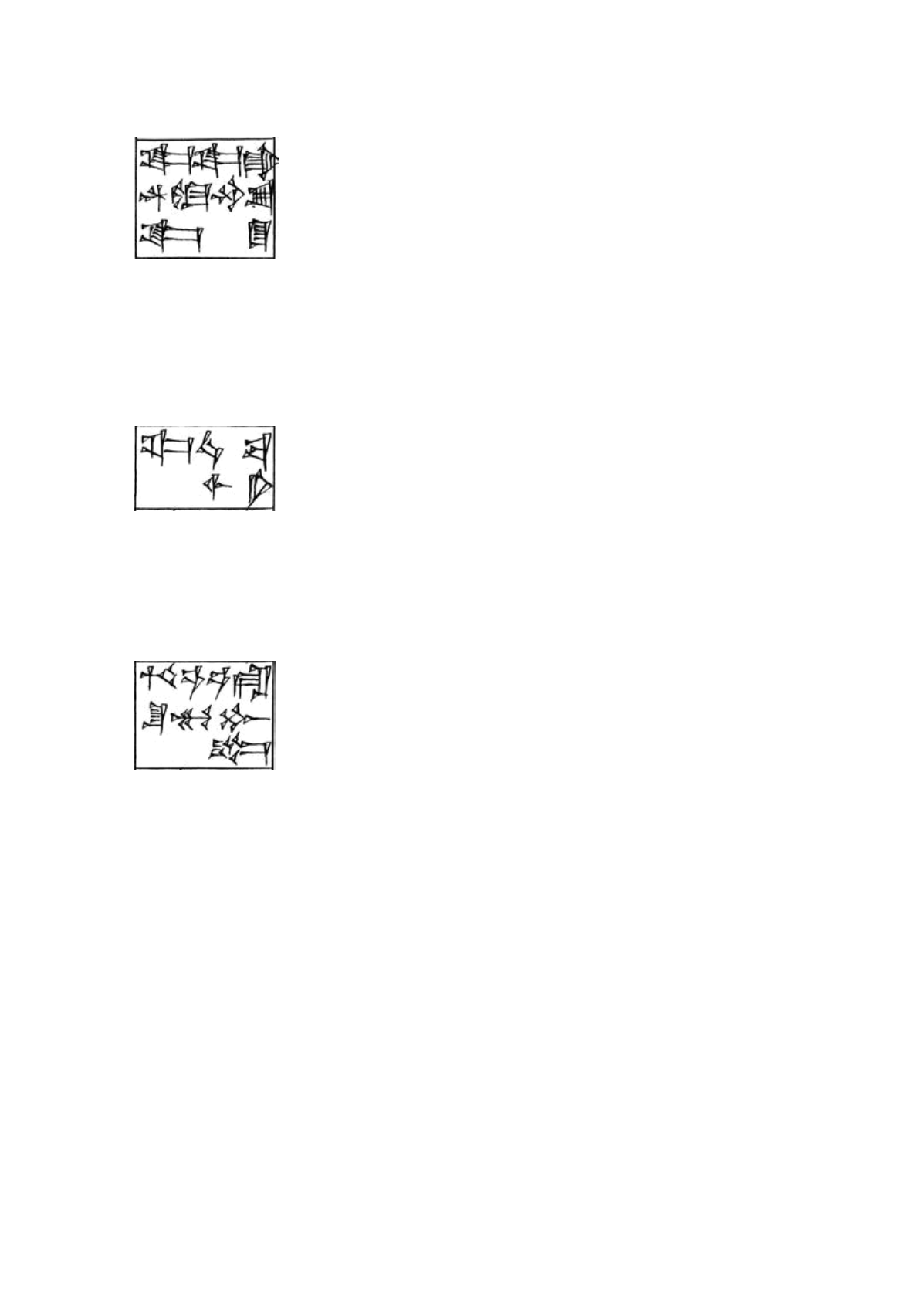

163
Gudea di Lagash – La costruzione del tempio di Ninjirsu - Cilindro A
A XII.14 - 317
inim dug
4
.ga d.nin.jir
2
.
su.ka.še3
[inim [dug
4
.a [
d
Nin.Jirsu].ak].ak].še
3
All’ordine emanato da Ninjirsu
inim (enim) : “parole, commandement, ordre” (PLS.47); cfr. A I.23
dug
4
.a : “das Gesprochene = das Wort”, è un participio passivo (cfr. A IV.10, VII.3); in apposizione a inim;
quindi lett. “all’ordine, parola di…”;
A XII.15 - 318
saj sig ba.ši.jar
saj sig ba.ši.n.jar
egli piegò la testa.
Vedi A VII.12
ba : questo CP è preferito davanti a prefissi che si riferiscono a esseri inanimati (TSL.178)
A XII.16 - 319
maš
2
babbar
2
.ra šu mu.gid
2
.de
3
[maš
2
babbar
2
].a šu mu.gid
2
.e
Un bianco capro egli esamina:
[maš
2
babbar
2
].a : col marker del locativo (GSG2.111), non cross-ref. (GSG2.117);
maš
2
: “kid; he-goat”; Bock (GSG1.69); “extispicy (divination based on the entrails of a sacrificed animal);
sacrificial animal (SL)”
babbar
2
: vedi A VII.2, X.24; il fatto che sia formato dal raddioppamento bar
6
.bar
6
, porta Falkenstein a
traudurre “ein schneeweisses Opfertier” (GSG2.47n3).
šu mu.gid
2
.e : con forma
marû
, “er beobachtet” (GSG1.154, 185); “he is examining” (TSL.180); šu…gid
2
:
die Hand lang machen = (ein Opfertier) untersuchen” (GSG1.124; GSG2.60); “accepter, inspecter une
offrande animale” (PLS.56); “to accept”, lit. “to stretch out the hand”; it is also used in the specific sens
“to observe the offering animal” (TSL.304); gid
2
: “long; éloigné” (PLS.56)
















